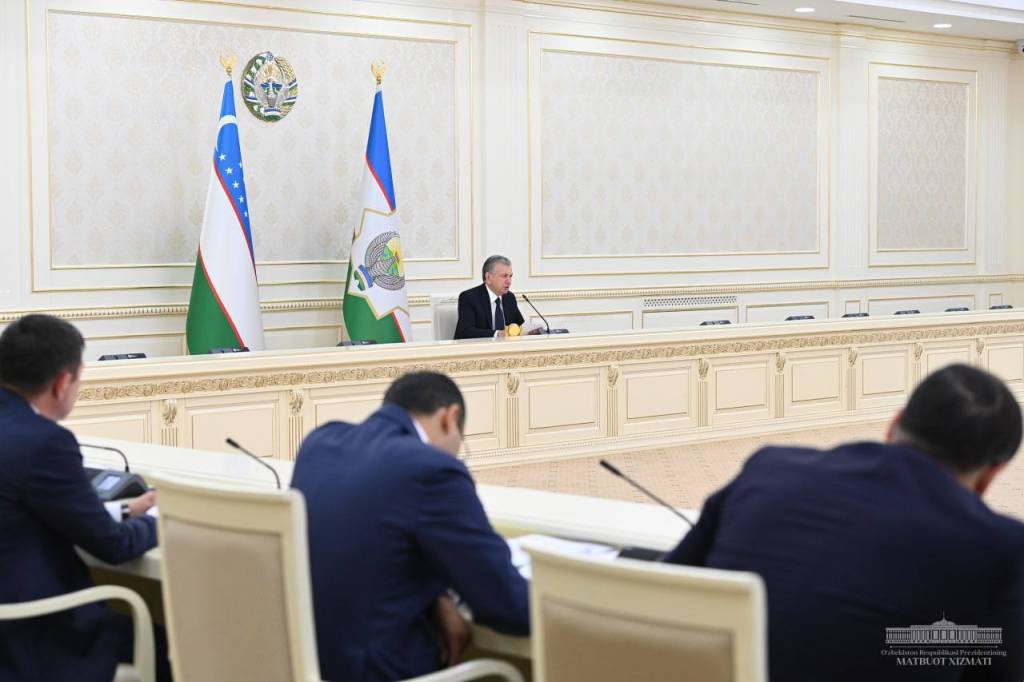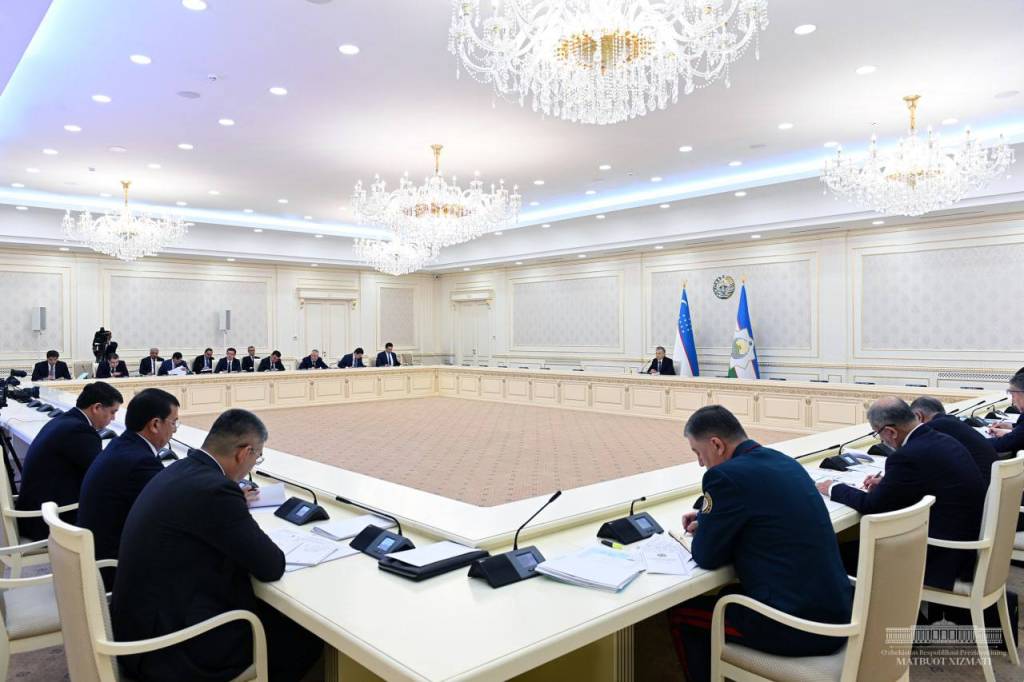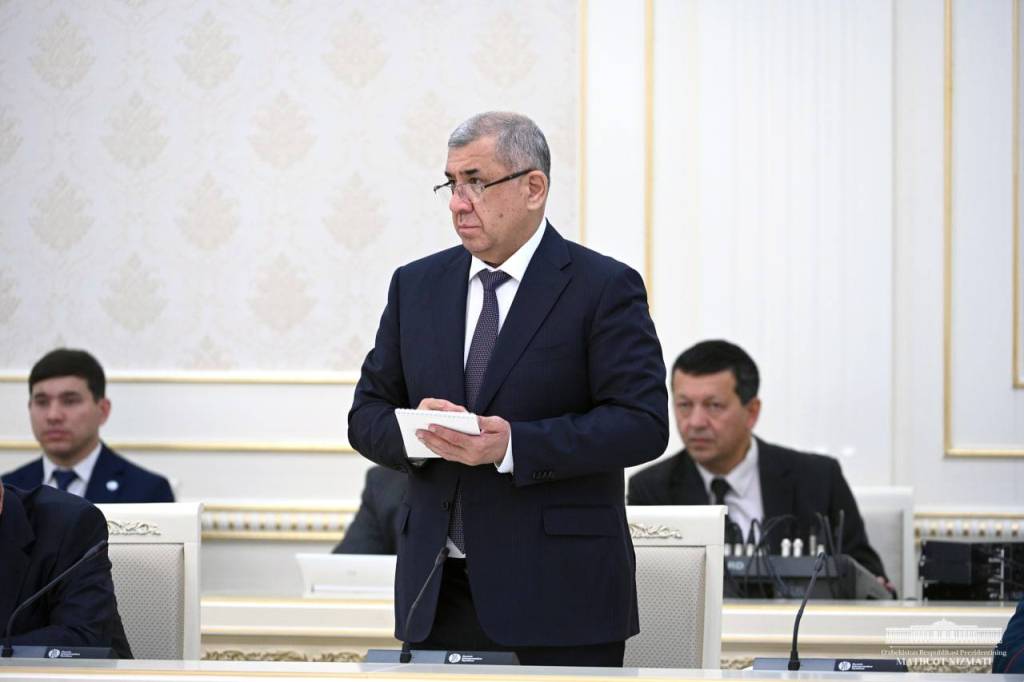Shavkat Mirziyoyev: Population’s mood – a mirror of our reforms and policy

On October 11, President Shavkat Mirziyoyev chaired a meeting on the priority tasks of improving mahallas and addressing issues concerning the population.
All the transformations carried out in the country, the ongoing socio-economic projects are aimed at ensuring the prosperous life of people. The main requirement of the Head of the state is that the results of the reforms should be felt in the lives of people and mahallas where they live.
To this end, as part of this year’s programs, almost 29 trillion soums have been allocated from the budget for the improvement of 4,100 mahallas, as well as for solving problems related to kindergartens, schools, healthcare, water supply, electricity supply, and sewerage.

Internal roads were repaired in 434 mahallas. Drinking water supply networks have been installed in 672 mahallas. 34 new schools have been built, 338 have been reconstructed and 360 schools have been repaired. Opportunities were created for teaching another 78,000 children. 580 transformers, 20,000 kilometers of power networks have been updated. Power supply has been improved for 1.5 million residents in 413 mahallas.
At the meeting, measures were discussed for the systematic continuation of this activity and addressing current issues in mahallas.
“No citizen should be left alone with their problems. The mood of the population is a mirror of our reforms and policy. Timely response to every problem that worries people, its consistent solution should be the main priority of leaders at all levels”, Shavkat Mirziyoyev said.

There are 9,370 mahallas in the country. On behalf of the President, the working groups visited each of them and formed a list of problems concerning the population.
12,000 issues related to roads, drinking water, irrigation, electricity, education and medicine were raised.
Specific tasks to address these issues were defined at the meeting.

It was determined that 1 trillion 700 billion UZS will be allocated for the “Obod Qishloq” (Prosperous Village) and “Obod Mahalla” (Prosperous Neighborhood) funds for the construction and repair of facilities in 4,979 mahallas. If necessary, another 1 trillion UZS will be allocated by the end of the year.
The Participatory Budgeting Project has become an essential means of improving the lives of mahallas. In the second half of this year, 9,201 mahallas (98 percent of all mahallas) participated in this project. According to the voting results, 1,418 projects in 1,221 mahallas were recognized as winners, 1 trillion UZS were allocated for their implementation.
The President proposed to further expand the Participatory Budgeting Project to meet the needs of the population and improve mahallas.

Thus, an additional 335 billion UZS will be allocated for 364 projects in 342 mahallas that received more than 2,000 votes but did not win the vote. In addition, considering the importance of public health, an additional 200 billion UZS will be allocated next year to equip mahalla medical centers and family polyclinics.
It was emphasized that from 2023, 30 percent of additional funds from regional budgets will be directed to Participatory Budgeting projects. This is an additional 1 trillion UZS.
Starting next year, funds for mahalla infrastructure will be distributed only through the Participatory Budgeting for those projects that residents need.

“Starting January 1 next year, funds for the Participatory Budgeting projects will be increased by 3.5 times to 8 trillion. Thus, there will be justice, and people, of course, will carefully use the objects in the creation to which they have contributed”, the Head of the state said.
Another innovation is that next year the Mahalla Budgeting system will be introduced so that each mahalla could independently solve its problems. In one of the districts of each region, the functions of collecting property and land taxes from the population will be transferred to mahallas as an experiment. The funds will remain in the budget of mahallas.
Responsible persons were instructed to develop a procedure for the formation, spending and control of these funds.

At the meeting, special attention was paid to the landscaping issue.
The task was set to plant 75 million fruit and ornamental trees by the end of this year within the framework of the nationwide project “Yashil Makon” (Green Space), and another 125 million seedlings in the spring of next year. Based on the last year’s experience, 40 tree planting action days are announced from October 20 to December 1.
“Tree planting should be carried out with soul, become an integral part of the culture of our people, our mahallas”, the President said.
Following the meeting, reports and proposals of responsible persons were heard.
UzA








